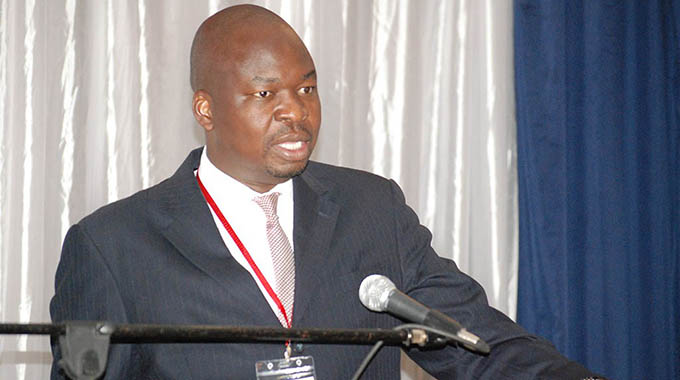Covid-19: India commits to working with Zim

Fungi Kwaramba
Interview
As Zimbabwe accelerates its vaccination programme across the country to inoculate at least 60 percent of the population against Covid-19, our Political Editor Fungi Kwaramba (FK) interviewed the Indian Ambassador Vijay Khanduja (VK), whose country is one of the world’s biggest drug manufacturer about various strategies being taken to fight the global plague. Below are excerpts of the interview.
FK: India has been, even before the advent of Covid-19 producing 60 percent of global medicines. How is the situation now regarding Covid-19 vaccine? In India, have you started the vaccination programme and what are the challenges the country is facing, if any?
VK: India has given emergency use authorisation for two vaccines — Covaxin by Bharat Biotech and Covishield (Oxford-AstraZeneca) being produced by Serum Institute of India. On January 16, 2021, Prime Minister Modi rolled out the world’s largest vaccination programme. Our initial focus has been on healthcare and frontline workers.
As of 18 February, 2021, more than nine million people have been vaccinated in India. India has also provided vaccines to over 25 other countries, in line with Prime Minister Modi’s assurance at the UN General Assembly last year that “India’s vaccine production and delivery capacity will be used to help all humanity in fighting this crisis”. India has so far exported more than 27 million doses and nearly 25 percent of these have been provided to friendly countries as gifts.
FK: Can developing nations like Zimbabwe, look up to India to provide cheaper vaccines?
VK: We have conveyed an offer of grant of Covid-19 vaccines to the Government of Zimbabwe. We are awaiting regulatory approvals from the Zimbabwean side. As soon as the regulatory approvals are provided, India is ready to dispatch the vaccines.
We have also provided the contact details for Zimbabwe to enter into commercial negotiations directly with the vaccine producers. We are ready to assist the Government of Zimbabwe while negotiating commercial purchase with the companies.
FK: How safe are vaccines? We have seen some concerns on their efficacy against emerging strains like the South African variant?
VK: As I have mentioned earlier, we rolled out vaccinations in India on January 16, 2021, and have so far vaccinated more than nine million people. In addition, millions of Indian vaccines have been exported to and are being used in other countries.
This is in addition to the trials undertaken in India and also overseas. All of this should help allay concerns about the safety and efficacy of the vaccines. A recent study conducted has found efficacy of Covaxin (by Bharat Biotech) against the South African variant.
More usage and more studies will, of course, confirm the findings. These vaccines have to be given under medical supervision and the medical authorities will be provided with all relevant information from the concerned companies to enable them make patient-specific informed decisions.
FK: Given that Covid-19 has slowed down economic growth across the globe, how is India coping and what are the lessons that Zimbabwe can take from its friend?
VK: India has managed to contain the pandemic till now. From a peak of around a 100 000 daily cases in the month of September, 2020, the numbers have dropped to about 10 000 per day recently.
India took very proactive measures from the time of outbreak of the pandemic. We imposed the world’s largest lockdown when required and gradually relaxed the same as conditions improved.
Information and communications technology tools were used to disseminate information about the pandemic. Aarogya Setu App was extensively used for contract tracing. For vaccine administration and logistics management, we are successfully using COWIN App.
The Department of Telecom of India used caller tunes to create mass awareness. Due to increase in testing numbers, contact tracing, effective isolation protocol, efficient use of hospital beds, increased availability of medical equipment, testing kits and sustained public awareness campaign, India’s recovery rate is now 97,33 percent (as on 18 February 2021) and the fatality rate has dropped to 1,43 percent.
With progressively falling positivity rate, testing has worked as an effective tool to limit the spread of infection.
The Indian economy is also recovering rapidly and better than most expectations. India’s GDP contraction in the second quarter of financial year 2020-2021 was much lower at 7,5 per cent compared to the 23,9 percent in the first quarter.
The IMF has projected a 11,5 percent growth rate for India in 2021, the only major economy for whom a double-digit growth is projected in 2021.
FK: Tell us about the bilateral ties between Zimbabwe and India?
VK: India and Zimbabwe share friendly and cordial ties and it is a great honour for me to be appointed India’s Ambassador to Zimbabwe. There is a lot of scope for further strengthening of bilateral relationships. The Government of India has extended lines of credit for Hwange and Bulawayo Thermal Power Plants and it would be my endeavour to have these operationalised at an early date.
An agreement to start work on Deka Pumping Station under a line of credit by the Government of India has been signed in January 2021. My focus would also be on further strengthening of relationships in the areas of health including traditional medicine, trade and commerce, education apart from the political one.
FK: How have you responded to the Second Republic re-engagement initiative and its Open for Business Policy?
VK: Indian investments in Zimbabwe are of the order of US$500 million. Indian companies provide employment to 5 000 Zimbabwean nationals.
The investments are in diverse sectors including cooking oil, beverages, mining, health sector etc. More and more Indian companies are viewing Zimbabwe for trade and investment.








Comments